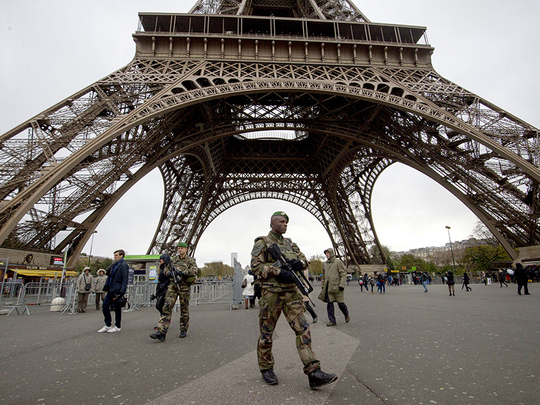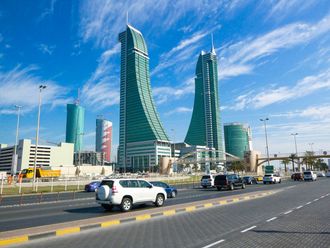
Dubai: Cancellations and last minute changes to European holidays have risen this summer with travellers increasingly concerned about the threat of terrorism.
Terror attacks in Belgium, France and Turkey have prompted holidaymakers to cancel their bookings or seek out other destinations perceived to be safe. The recent failed coup in Turkey and the terror attack in Nice, France, are expected to add to the pressure.
“This is not going to be a good year,” European Tour Operators Association chief executive Tom Jenkins told Gulf News. “There is a real suppression of demand for destinations like Belgium and France.”
Visitors from the US and China are apprehensive in booking flights to Europe, airlines have said since the terror attacks in Brussels in March and in Paris in November.
There have been “shifting travel patterns” this summer, Emirates, the Middle East’s largest airline, told Gulf News. “Including higher demand out of the UAE this year for points in Europe like Athens, Prague and Lisbon.”
“Increasingly, people … are going to consider terrorism as one of the factors in making the decision on where they are going to go,” David Lea, senior analyst at Control Risks in London told Gulf News.
Summer is Europe’s peak travel season with millions of holidaymakers flocking to the continent between May and October each year. France, the most visited country in the world, received 84.5 million arrivals in 2015, according to research group Euromonitor International.
Lea said the Nice attacks would weaken travel demand to France.
Even before the failed Turkish coup and Nice attack countries had issued travel warnings for Turkey and Europe. The United States State Department has a Europe-wide travel alert in place until August 31 and the UK issued a travel alert ahead of the monthlong Euro 2016 football tournament that ended on July 10.
Holidaymakers are also hesitant about travelling to Europe this summer because of the refugee crisis that has strained relations among EU members after more and one million refugees entered the Europe in 2015.
“It looks like Europe is in crisis,” Jenkins said.
Holidaymakers looking for alternatives to Turkey, which has seen its tourist industry all but collapse after a spate of deadly bombings attributed to the terror group Daesh and Kurdish militants, have turned to the western Mediterranean — Greece, Italy, Portugal and Spain. Industry experts say Scandinavia and Eastern Europe are also doing well.
Turkey did try to turn around its struggling tourism industry, including with major advertising campaigns such as flag carrier Turkish Airlines sponorsing Euro 2016, but the Association of Turkish Travel Agencies told Gulf News visitor numbers could not recover this year.
“The coup attempt and the preceding Ataturk airport attack have had a negative impact on the success of these efforts,” Ali Sökmen, associate analyst at Control Risks in London, told Gulf News.
European package holiday operators Thomas Cook and Kuoni both told Gulf News the western Mediterranean had increased in popularity this summer. Thomas Cook said “demand to Turkey is significantly down.”
There has been “a swing back to Spain”, Kuoni said. “It’s seen as a safe choice for both winter and summer sun following the ongoing concerns around Egypt and Turkey.”
The medium to long-term impact on Europe’s tourism industry by the threat of terrorism is unclear. Analysts say people will continue to travel, albeit in fewer numbers, but that the threat is not seen to weaken the industry any time soon. “The nature of terrorism is that it is a bit like “whack-a-mole.” Every time something comes up and you think you have dealt with it then another thing will come up and that’s a problem the countries in Europe face,” Lea said.
There has also been the effect of Brexit. Cost of travel has increased for Britain’s due to the pound falling against the euro after the United Kingdom voted to leave the European Union on June 23.
Thomas Cook said the “the implications of the UK vote to leave the EU are still unclear.” British Airways parent company International Airlines Group (IAG) issued a profit warning the day after the Brexit vote.












